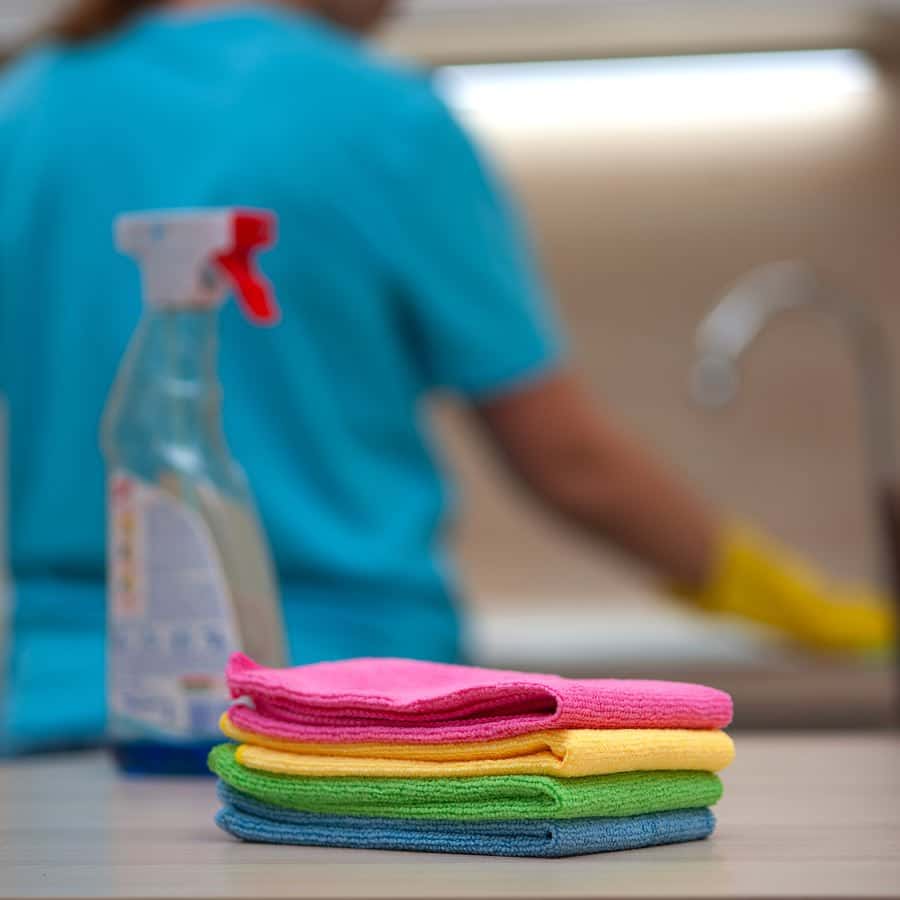
Years ago, researchers reported that women who use common cleaning products are at risk for reduced lung function. The drop was gradual, but it appeared to be sustained. More recently, scientists have found that cleaning your house with some very common chemicals could also harm the brain. That’s the bottom line from a study published in Nature Neuroscience.
What Compounds Damage Brain Cells?
Researchers found that quaternary ammonium compounds posed problems (Nature Neuroscience, March 25, 2024). These chemicals, called “quats” for short, are found in fabric softeners, shampoos, sunscreens, disinfectants, baby wipes and shaving cream.
Another class of compounds that are worrisome are organophosphate flame retardants found in furniture, building materials and electronics. Both classes of chemicals can damage cells called oligodendrocytes in different ways. Quats kill them. Organophosphates prevent them from maturing. These brain cells are essential for proper neurological functioning.
The scientists tested mice and found that the offspring of animals exposed during pregnancy often suffered neurological diseases.
According to the investigators,
“Our findings suggest that more comprehensive scrutiny of the impacts of these common household chemicals on brain health is necessary.”
European Respiratory Health Survey:
Norwegian researchers discovered the deleterious effects of quats on lung function when they analyzed results from 6,235 volunteers in the European Respiratory Health Survey (Svanes et al, American Journal of Respiratory and Critical Care Medicine, online Feb 16, 2018). They tracked these participants over more than two decades.
Are Cleaning Products as Bad as Cigarettes?
Inhaling chemicals from cleaning sprays and other chemicals used in cleaning appears to accelerate lung function decline over the years. Women who clean houses or offices for a living had lung function decline comparable to smokers. The researchers estimate that it is equivalent to 10 to 20 pack-years of tobacco smoking.
Cleaning was not associated with worsening lung function in men, but that might be due to fewer men reporting that they did home or occupational cleaning. (Only 57 men were professional cleaners.) Men who did report that they were the ones doing the cleaning in their households had more doctor-diagnosed asthma.
How Does Cleaning Affect Lung Function?
The authors believe that the deleterious effect on the lungs is due to chronic irritation of lung tissue by cleaning chemicals, particularly quaternary ammonium compounds. This could result in airway remodeling and persistent changes in the airways. That might explain the decline in forced expiratory volume (FEV1) and forced vital capacity (FVC).
Asthma was also more prevalent in women who clean either at home or at work than among those who did not clean. The authors suggest that cleaning activities represent a risk to respiratory health among women that deserves further study.
Household Cleaning Products as Sources of Pollution:
An independent study in the journal Science (Feb. 16, 2018) shows that the volatile organic compounds (VOCs) from cleaning agents, pesticides, personal care products, printing inks and adhesives are catching up to vehicle emissions as sources of pollution. Partly, this is because regulation and technology are reducing the amount of pollution that cars, buses and trucks put out.
Exposure to air pollution is bad for people’s lungs and their general health. Now that VOCs from household and workplace compounds like oven cleaner, ink or shampoo account for half of urban air pollution, public health officials may need to turn more attention to controlling airborne chemicals from these sources.
Citations
- Cohn EF et al, "Pervasive environmental chemicals impair oligodendrocyte development." Nature Neuroscience, March 25, 2024. DOI: 10.1038/s41593-024-01599-2
- Svanes Ø et al, "Cleaning at home and at work in relation to lung function decline and airway obstruction." American Journal of Respiratory and Critical Care Medicine, online Feb 16, 2018. https://doi.org/10.1164/rccm.201706-1311OC
- McDonald BC et al, "Volatile chemical products emerging as largest petrochemical source of urban organic emissions." Science, Feb. 16, 2018. DOI: 10.1126/science.aaq0524

